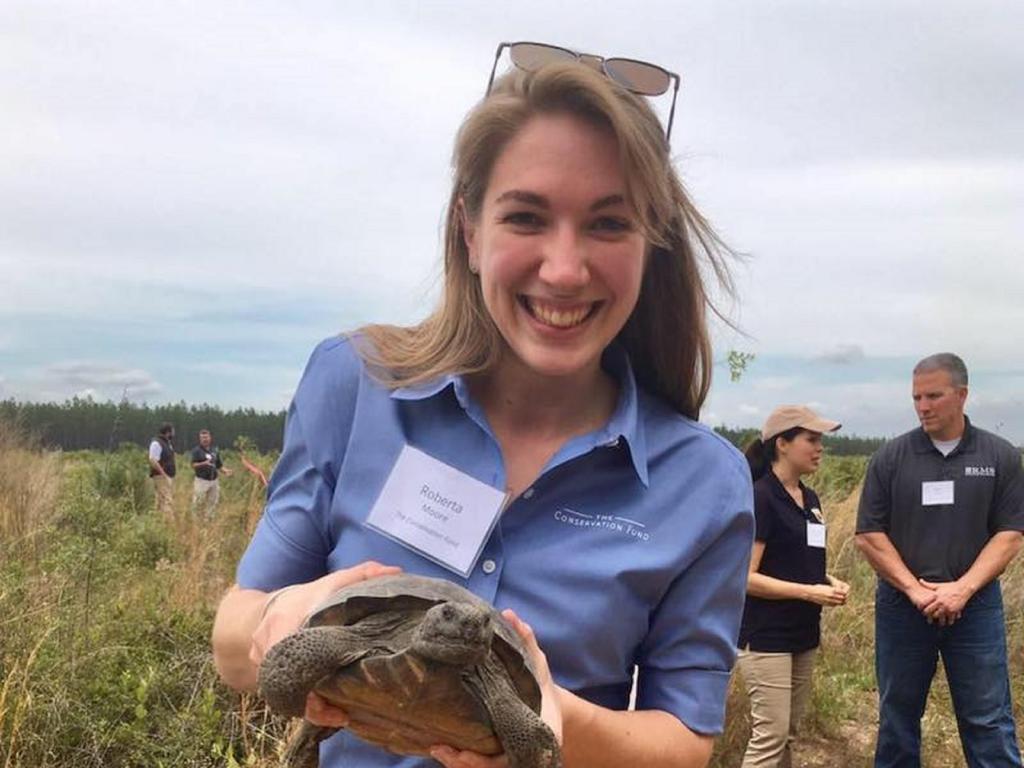Rhodes environmental science alumna Roberta Moore ’14 is being recognized this month by The Conservation Fund for “Women Who Are Making Conservation History.” The national environmental nonprofit is dedicated to protecting America’s most important landscapes and waterways.
Moore works as a conservation associate at the Atlanta, GA, office, where she implements conservation programs and services throughout the Southeast.
“Since 2017, Roberta Moore has supported some of The Conservation Fund’s most diverse and impactful conservation projects,” according to her story on the organization’s website. “In particular, she has taken conservation mapping to a new level so that more people can visualize the scenarios behind our work. Roberta uses GIS (Geographic Information Systems) to create conservation maps that really demonstrate the impact of the Fund’s work across the Southeast and help identify priority areas for conservation throughout the region.”
While a Rhodes student, Moore took first place and third place for posters she presented at the Mid-South Geographic Information System Conference. She also participated in the Rocky Mountain Ecology Maymester program through the Teton Science Schools in Jackson Hole, WY, where she immersed herself in field work, observations, and discussions on ecology.
“I am doing the work I do now because of the education I received at Rhodes,” says Moore. “I was unaware of environmental science as a field I could go into before learning about it my freshman year. I also first learned about GIS in Dr. Sarah Boyle’s intro to GIS course, after which I spent the next two years as a Rhodes Student Associate managing the GIS lab and assisting other students. That experience provided me the opportunity to advance my GIS skills and learn to apply them in a variety of ways, including in conservation.”
Moore pursued research throughout her undergraduate career, and her senior seminar paper, focusing on the importance of toxicity in determining the impact of hazardous air pollutants on the respiratory health of children in Tennessee, was eventually published in the peer-reviewed journal Environmental Pollution.
After graduation, Moore worked as an environmental educator in California, Wyoming, and Tennessee, and she recently became certified as a Georgia Master Naturalist.
“The outdoors is important to so many people for many reasons,” she says. “I think it’s crucial that we cherish our environment and I’m dedicated to finding ways to both protect nature and make it more accessible to everyone.”
